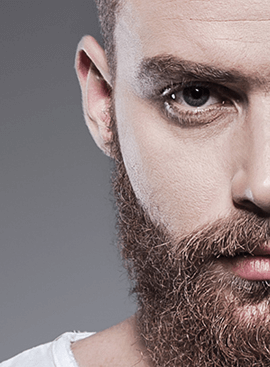Between July 1, 2010 and June 30, 2018, any holder of a non-sale licence may permit persons 18 years of age and older to sell alcoholic beverages if less than 50% of their gross sales are derived from the sale of alcoholic beverages. Effective July 1, 2018, any holder of a non-sale sales licence may permit individuals 18 years of age or older to sell alcoholic beverages if less than 50% of their gross sales are derived from the sale of alcoholic beverages or if the licensee or an employee who is at least 21 years of age is on the premises at the time the alcoholic beverage is sold. 2. On private premises, not selling liquor, without parental consent: The consumption of alcohol by minors is not prohibited in some states on private premises that do not sell liquor, although it may be illegal for adults to provide alcohol to minors in those states. Each state sets its own specific requirements for what is considered legal. You are not allowed to buy alcohol before the age of 18. If you are under the age of 18 and possess alcohol in public, you are committing an offence under the Concessions and Catering Act. Outdoor spaces such as streets and parks are public places, as are shopping malls and pubs. * For established religious purposes;* If a person under twenty-one years of age is accompanied by a parent, spouse or guardian twenty-one years of age or older;* For medical purposes, if purchased as an over-the-counter drug or prescribed or administered by a physician, pharmacist, dentist, nurse, a hospital or an authorized medical facility;* In a private dwelling, which includes a residential dwelling and up to twenty contiguous hectares on which the dwelling belonging to the same person who owns it is situated;* the sale, handling, transport or service of supplying alcoholic beverages on the basis of the lawful ownership of an establishment or the lawful employment of a person under twenty-one years of age by a duly licensed producer, wholesaler or retailer of alcoholic beverages. In 1984, the federal government passed the National Minimum Drinking Age Act, setting the National Minimum Drinking Age at 21 (“MLDA”). It was phased in over a few years, and today, all 50 states require you to be 21 or older to buy alcohol.
So why discuss drinking age by state? Some states are strict when it comes to underage drinking and may also have special laws to determine blood alcohol concentration (“BAC”), where a person under the age of 21 is considered intoxicated. If you are a miner, these values are often low or set to zero. In general, if you`re under 21, it doesn`t take much alcohol to bring your blood alcohol level up to the levels set in many states. Low levels and some severe penalties are set to deter underage consumption. A state`s exemption from the MLDA may also be site-specific. Some state laws only allow minors to legally consume alcohol in a parent`s or guardian`s private home, while others only allow alcohol consumption on authorized premises accompanied by their parents, guardians, or spouses. States like Texas allow minors to drink in places licensed to sell alcohol, such as a restaurant or bar, if their parents are present and allow it. The history of American alcohol consumption is complicated. As with many other vices, alcohol is both celebrated – “It`s Miller time!” – and condemned in popular culture. More than 1 in 7 American adults say drinking alcohol is a sin, according to a 2015 Pew Research Center survey. Although the consumption of alcohol by minors is not expressly prohibited by law, the possession of alcohol by minors is prohibited unless the minor is accompanied by a parent or guardian or the person is over 18 years of age and possesses alcohol in the course of employment. According to the Alcohol Policy Information System (APIS), “possession and consumption are closely linked, as consumption generally requires possession.” Source: Alcohol Policy Information System (APIS) website (accessed May 21, 2010) Chapter 138: Section 34C Alcohol may be sold by persons between the ages of 18 and 20 only in licensed establishments where the sale or service of intoxicating liquor is part of the minor`s employment and where such underage employees are properly supervised; Ensure that minors do not consume intoxicating alcohol.
This card masks an incredible complexity and variety of exceptions for minors. Some states make exceptions when minors are allowed to consume alcohol. Others make exceptions if they are allowed to own it. Still other states, such as Arkansas, do not have exemptions for possession or consumption by minors, but still make exceptions for parents who want to provide alcohol to their children. All of this adds up to a confusing mess that is almost impossible for parents, teens, and even lawyers to understand. According to the report, in 2016, more than 50% of people in America, Europe and the Western Pacific (Japan, Australia, Oceania) drank alcoholic beverages. For comparison, in 2016, only 32.2% of people in Africa and 33.1% of people in Southeast Asia (India, North Korea, Sri Lanka, etc.) drank. In addition, 94.9% of the inhabitants of the Eastern Mediterranean (Egypt, Iran, Yemen, etc.) abstained from alcohol throughout their lives. Alcohol consumption is illegal in many Eastern Mediterranean countries, at least for Muslims. Maryland laws allow exceptions for certain Maryland locations that may have more or less restrictive laws on the age of sale or service of liquor.
These “local options” are not processed by APIs. It`s not just ordinary people who struggle to understand these apparent contradictions — some states even publish seemingly contradictory information about their juvenile laws. For example, if you`re looking for underage alcohol laws in New York City, you`ll find this booklet from the State Liquor Authority that pretty clearly states, “If you`re under 21, it`s a violation of the law to consume alcohol with intent to consume alcohol.” 3.
